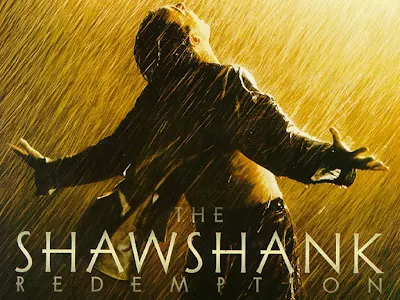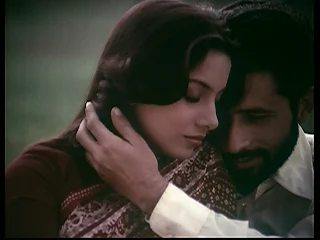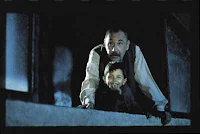
The Truman Show (1998)
An unassuming film:
It is thought provoking on so many levels, well acted and thoroughly enjoyable piece of craftwork. This is a deep movie, bound to become an art film. Too few films ask us to question the world around us.
An unassuming film:
It is thought provoking on so many levels, well acted and thoroughly enjoyable piece of craftwork. This is a deep movie, bound to become an art film. Too few films ask us to question the world around us.
Starting as a comedy, I am always taken by how well the film moves to become more and more interesting but yet never loses sight of those audience members who have come for the basic story. Of course by seeming to tackle so many subjects and issues in such a short running time, the film never really gets its teeth deep into any one of them but this is not a major problem because it leaves us to do that in our heads after the film finishes.We grow to care for Truman and this makes the ending an emotional and satisfying one even if some viewers will bemoan the fact that (to them) it appears 'open ended'. That it is also a very thought-provoking affair is only a bonus, with the satire working on many levels.
I came away from 'The Truman Show' feeling inspired which is the goal of good filmmaking. Jim Carrey (Truman Burbank) was outstanding as Truman, underplaying him, not making him too comic or too dramatic, but giving true sincerity when asked. Ed Harris (Christof) has always been a good actor, but in this movie he's a great actor. He plays Christof with such arrogance and bullheadedness that you don't know whether he's helping or destroying Truman. He and the director, Peter Weir, deserved their Oscar nods. The cast is roundly superb even if the majority of them are in minor roles.
First off, a logical individual knows the whole premise of "The Truman Show" could never happen. So we must look for a deeper meaning to this film. To me, it is a re-statement of the old saw "it is better to be free and risk the perils of life than to be confined and protected in an artificial world." When the lady comes on the bike with the basket, then the dog and then the yellow Volkswagen it reminded me of how repetitive life seems at times, when we think that nothing is going to change and we want changes. The Director was like God, the creator, I think that all of us have questioned God and have been angry at him. Truman's world seemed so "perfect"! Our world seems much like that, everything is a matter of perception.
This movie is also testament that the inquiring mind cannot be contained no matter the inculcation. Truman WANTS to discover new horizons; to think outside his box. When computer glitches alert him to his being watched, it inspires him to get to the bottom of the mystery.
The film wants to take a philosophical look at free will versus a higher power and reality versus fantasy. It doesn't always work as the satire often keeps you from thinking too deeply about the underlying themes and the philosophical stuff keeps the satire from biting as well as it could.
The film's surrealistic nature is frightening when the viewer realizes the legal feasibility in today's society, and it offers a great message about who or what we assume God to be and how He (he?) would react to our personal drives for discovery to challenge a world we treat as an aquarium. Some things to note and ponder: The way the real-life viewers ignore the real lives of their compatriots and customers while focusing on a false life on screen; whose life is more real and whose is worth living?
I came away from 'The Truman Show' feeling inspired which is the goal of good filmmaking. Jim Carrey (Truman Burbank) was outstanding as Truman, underplaying him, not making him too comic or too dramatic, but giving true sincerity when asked. Ed Harris (Christof) has always been a good actor, but in this movie he's a great actor. He plays Christof with such arrogance and bullheadedness that you don't know whether he's helping or destroying Truman. He and the director, Peter Weir, deserved their Oscar nods. The cast is roundly superb even if the majority of them are in minor roles.
First off, a logical individual knows the whole premise of "The Truman Show" could never happen. So we must look for a deeper meaning to this film. To me, it is a re-statement of the old saw "it is better to be free and risk the perils of life than to be confined and protected in an artificial world." When the lady comes on the bike with the basket, then the dog and then the yellow Volkswagen it reminded me of how repetitive life seems at times, when we think that nothing is going to change and we want changes. The Director was like God, the creator, I think that all of us have questioned God and have been angry at him. Truman's world seemed so "perfect"! Our world seems much like that, everything is a matter of perception.
This movie is also testament that the inquiring mind cannot be contained no matter the inculcation. Truman WANTS to discover new horizons; to think outside his box. When computer glitches alert him to his being watched, it inspires him to get to the bottom of the mystery.
The film wants to take a philosophical look at free will versus a higher power and reality versus fantasy. It doesn't always work as the satire often keeps you from thinking too deeply about the underlying themes and the philosophical stuff keeps the satire from biting as well as it could.
The film's surrealistic nature is frightening when the viewer realizes the legal feasibility in today's society, and it offers a great message about who or what we assume God to be and how He (he?) would react to our personal drives for discovery to challenge a world we treat as an aquarium. Some things to note and ponder: The way the real-life viewers ignore the real lives of their compatriots and customers while focusing on a false life on screen; whose life is more real and whose is worth living?

In the end this film is closer in spirit to psychological dramas and sci-fi movies where a person suddenly realizes they are the pawn in some grand experiment or a prisoner in an alien world than it is to anything in our current "reality TV" obsessed culture. Eventually it touches on a very basic conflict all humans must face: The universe does not revolve around us. In the closing moments we are excited for Truman because he finally realizes there is a whole new world out there to explore, but also slightly saddened because we know all to well that he will never be able to return to that idyllic "childhood" existence.
The paradoxical and disturbing messages in this movie should be examined for decades to come. Instead, the insight aspect of The Truman Show has been catapulted by a society that would more readily watch "reality" than live it. The film raises some interesting points about our fascination with life as seen through the magnifying lens of television, and the morality of real lives viewed as so much entertainment. The audience that watched the Truman Show in the movie was a self-indulgent audience of consumers who wanted to be entertained no matter what the cost to Truman, reminded me of the soaps opera & Paparazzi, of how we like to know about the celebrities, and ultimately of how the product could be the death of someone such as Princess Diana or Truman Burbank.
At times poignant, at times funny, always an undertone of darkness, The Truman Show is a metaphor for the pioneering spirit which cannot be contained; never more apparent than the final scenes .The final scene is a majestic, long-awaited finish to an intellectual movie. Those are the same viewers who prefer slapstick, obvious humor to the subtle layers presented here. This is a thinking person's movie. If you can't see the underlying message here, of course you won't like it!










